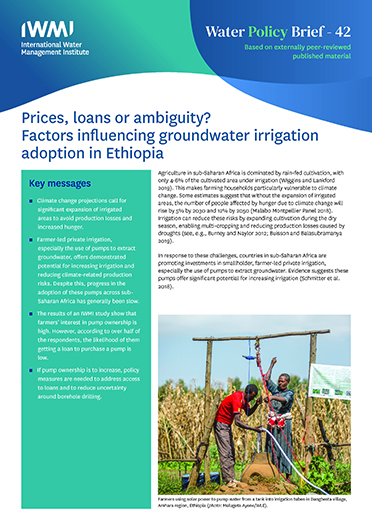Prices, loans or ambiguity? Factors influencing groundwater irrigation adoption in Ethiopia
Abstract
Governments in sub-Saharan Africa promote the expansion of irrigation to improve food security, primarily through the adoption and use of groundwater-based smallholder private irrigation. Using the case of Ethiopia, we examine farmers’ willingness to adopt smallholder private irrigation packages in response to subsidies on pump prices, loan availability and reduction in ambiguities related to borehole drilling. The results of the research highlight that subsidizing pump prices may not be the best use of public funds to expand irrigation. Instead, decreasing ambiguities around borehole drilling is likely to play a significant role and is a cost-effective step toward expanding groundwater-based irrigation and increasing the adoption of pumps by small-scale farmers. The policy implication is that the government should help farmers minimize the uncertainties and cost of unsuccessful drilling. This will require the government to study groundwater hydrogeology, use information on groundwater depth, seasonality and recharge to drill boreholes, and absorb the costs of unsuccessful drilling.

